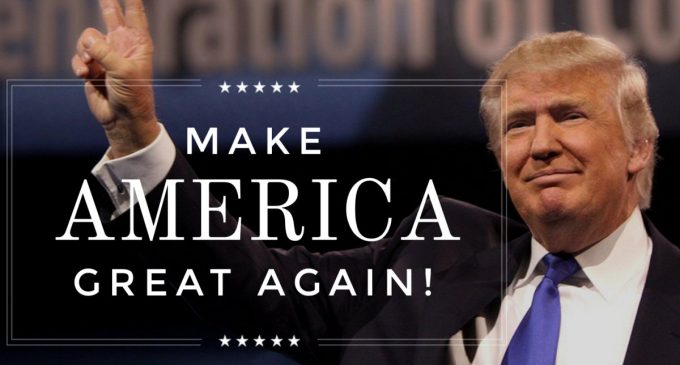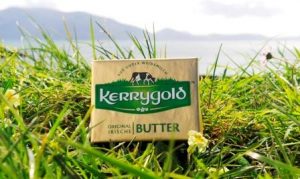How Will ’Trumpenomics’ Affect the Irish Food Industry?

By John Whelan
By the time Trump is sworn in as President in January, the global food industry including those with a presence in Ireland will already have taken protective action to Trump proof their business. But will it be enough and as Trump describes himself as ‘totally flexible on very , very many issues’ the industry may still get it wrong as the pre-election rhetoric may not be transformed into actual policies. It is a time for agile leadership.
There is no doubting that Trump’s stance on free-trade will have deep implications for the food and beverage sector, with a clear intent to protect jobs within the US: “As President, I will be an aggressive proponent for defending the economic interests of American workers and farmers on the world stage. I will fight against unfair trade deals and foreign trade practices that disadvantage the United States.”
Key Irish food groups such as Glanbia, Kerry Group, the Irish Dairy Board (Ornua ), Greencore and Aryzta are extensively exposed to the US with combined sales revenues estimated at €6 billion last year in the market. Most exposed is Glanbia with 55% of its revenue in the US, Aryzta is close behind with 49% of sales there, Ornua has also a strong presence giving rise to 40% of its revenue, Kerry Group has a lower exposure with 16% and Greencore ahead of their recent acquisition was least exposed with 15% of revenue in the US.
 The Greencore Group shareholders obviously see the timing of the recent acquisition of US foods group – Peakcock Foods – as very fortuitous timing by chief executive Patrick Coveney, with shares surging more than 12pc when announced. The $748m (€695m) deal will quadruple Greencore’s US sales, taking US revenue up to 42% of total group turnover.
The Greencore Group shareholders obviously see the timing of the recent acquisition of US foods group – Peakcock Foods – as very fortuitous timing by chief executive Patrick Coveney, with shares surging more than 12pc when announced. The $748m (€695m) deal will quadruple Greencore’s US sales, taking US revenue up to 42% of total group turnover.
However, as most of this sales revenue arises from factory facilities located within the US, the directors and shareholders in these companies will feel relatively safe that they are meeting the ‘Trumpenomics’ current standards and will be protected and encouraged to expand there.
Conversely, for food and beverage companies manufacturing abroad and importing into the US, the situation looks set to get ugly. Coca Cola and Pepsi Cola, who manufacture the secret ingredient here in Ireland and then ship €1.6 billion of it to bottling plants across the US, may come under pressure to move all production back there. But also spirit producers such as Pernod Group, whose prime market for Jameson Whiskey is the US, could find themselves with even more pressure – perhaps bottling in the US may have to be envisaged to appease the protectionist regime. Ornua may also be a little concerned as they import butter from Ireland for some of the sales generated there, again packaging within the US may get them inside the protectionist tent.
 While production location challenges will continue to be of concern to food and drink makers for some time to come, there has been a welcome upside in the foreign currency markets. Contrary to expectations, currency markets did not shift to the traditional ‘safe havens’ of the Swiss Franc and Japanese Yen. Instead they have reflected favourably on the prospects of a Trump led Republican government driving jobs and growth at home, pushing the dollar back to its strongest since this time last year. With the expected Trump slump not materialising, companies who report their earnings in Euros have the added prospect of a currency translation gain when they repatriate their profits. All of the large Irish food companies mentioned will be buoyed up with the rebound of the dollar and will be able to reflect a strong bottom line gain due to the currency translation when reporting the quarterly and annual accounts.
While production location challenges will continue to be of concern to food and drink makers for some time to come, there has been a welcome upside in the foreign currency markets. Contrary to expectations, currency markets did not shift to the traditional ‘safe havens’ of the Swiss Franc and Japanese Yen. Instead they have reflected favourably on the prospects of a Trump led Republican government driving jobs and growth at home, pushing the dollar back to its strongest since this time last year. With the expected Trump slump not materialising, companies who report their earnings in Euros have the added prospect of a currency translation gain when they repatriate their profits. All of the large Irish food companies mentioned will be buoyed up with the rebound of the dollar and will be able to reflect a strong bottom line gain due to the currency translation when reporting the quarterly and annual accounts.
A continued strong dollar under the Trump administration will help offset expected losses by all these companies on the UK market from the Brexit debacle and the associated Sterling collapse.
However, the big losers from the Trump policies are likely to be the wide range of smaller food and beverage businesses who produce in Ireland and who have the US as the second largest market after the UK with exports growing to €755 million last year. They will be caught in the trade war that will inevitably follow the Trump administrations protectionist moves.


































